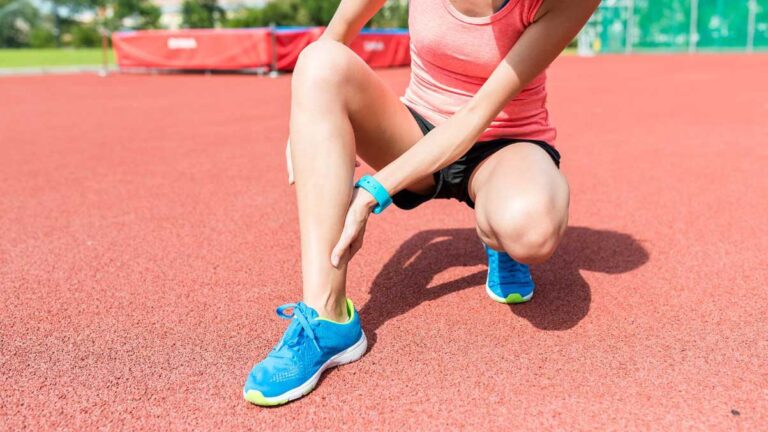One of the three most typical types of injuries is a sprain, which occurs when ligaments are ripped or stretched. Muscle fibers, tendons, and ligaments that have been partially torn or overused become strained. Sprains can sometimes also lead to strains. The treatment for sprains and strains is frequently the same, and how quickly you recover is determined by the extent of the injury and how much rest you receive before becoming hurt. In order to build up your muscles before you resume normal activities, your doctor can advise physical therapy. Even something as simple as walking can cause pain, so you should get medical attention right away if you have any discomfort. If you don’t address these types of injuries as soon as they occur, they can result in lasting damage.
- A knee strain (or pull) involves an injury to your anterior cruciate ligament (ACL), posterior cruciate ligament (PCL), or rotator cuff.
- A shoulder strain involves an injury to your rotator cuff.
- An ankle sprain involves one or more of your ankle’s ligaments.
Sprains, strains, and tears can be extremely painful and make it difficult for you to move; they can also indicate a more severe injury. Sprains and strains are best treated with urgent care in order to ease suffering and expedite healing, although acute back pain or other persistent disorders may leave you with little choice except to wait for help at home. Any of these symptoms that require immediate attention should be taken directly to an ER.

SPRAINS AND STRAINS CAN VARY IN SEVERITY
Acute soft tissue injuries can be categorized based on how serious they are :
Grade I: Function and strength are essentially unchanged, although a small fraction of the fibers are ripped, and the area is somewhat uncomfortable and inflamed.
Grade II: Some loss of function and strength is present, a substantial percentage of the fibers are ripped, and the area is uncomfortable and inflamed.
Grade III: There may be a complete rupture of the soft tissue, resulting in a significant loss of strength and function. For certain injuries, getting a medical opinion is advised.

TREATING SPRAINS AND STRAINS USING FIRST AID
To avoid serious damage and potentially even long-term health effects, make sure to seek treatment as soon as possible for sprains and strains. You may simply require RICE—rest, ice, compression/wrap, and elevation—if your ankle, knee, or shoulder can be moved or put weight on without becoming too painful or swollen. Anti-inflammatory drugs sold over the counter may also help reduce inflammation. Check out our comprehensive guide to sprains and strains for more information on how to treat these injuries at home while they recover on their own.
Whereas acute sprains or strains should be treated right away with the following recommendations :
- Stop what you’re doing.
- Give the hurt area some rest.
- Every two hours, place icepacks on the region for 20 minutes, separating them from the skin with moist towels.
- Firmly compress or bandage the wounded area, stretching the wrapping from the bottom to the top.
- When possible, elevate (raise) the damaged area above heart level.
- In the first 72 hours following the injury, avoid the heat, drinking, running, and massaging the injured area because these activities might worsen edoema.
- In the first 24 hours, if symptoms worsen, consult your doctor for additional testing.
Surgery may be required for severe injuries where the tissue has totally ruptured and needs to be repaired. Grade III surgically corrected injuries will need extensive therapy to regain strength and function. For a grade III injury, the medium- to long-term functional outcomes are similar whether you undergo surgery or a period of immobilization and physical therapy.
Call Specialty Care Clinics at (469) 545-9983 to receive physical therapy that is effective for you.
